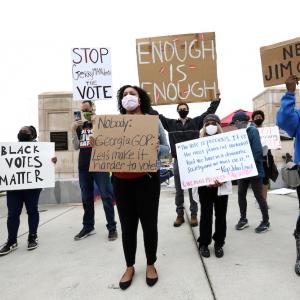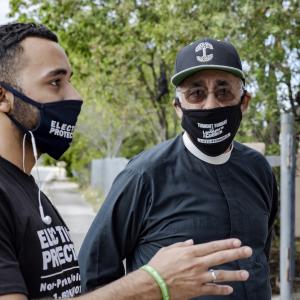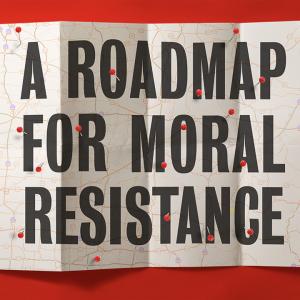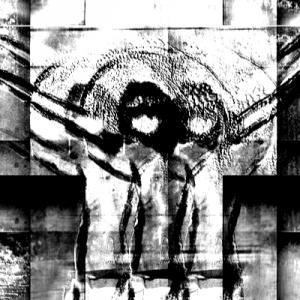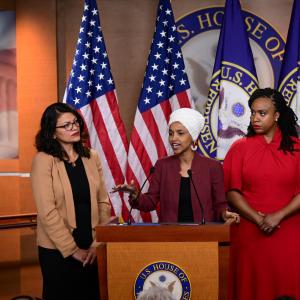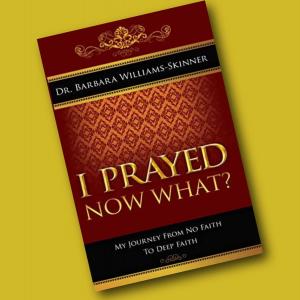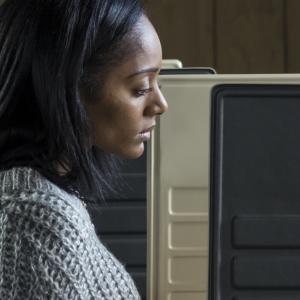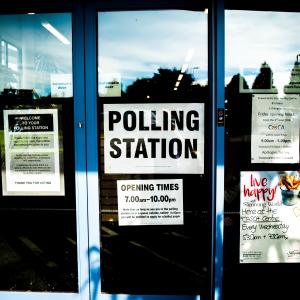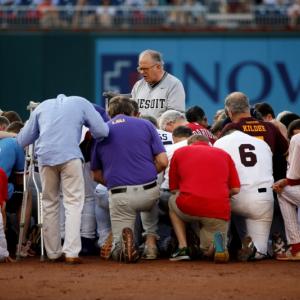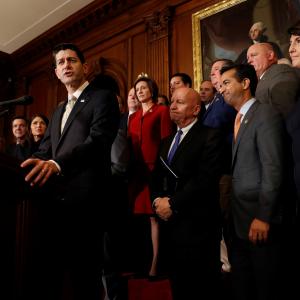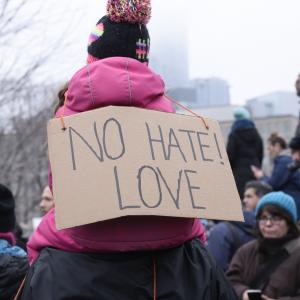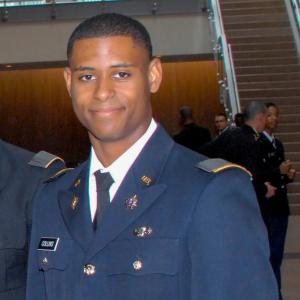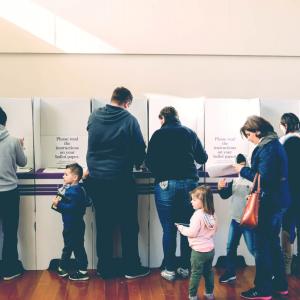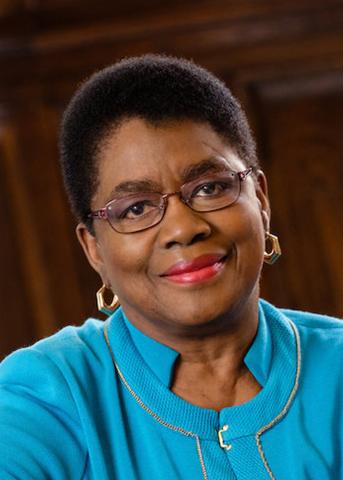
Trusted advisor, public policy strategist, faith and community leader, author, lecturer, educator, executive coach, and mentor, Dr. Barbara Williams-Skinner has made an indelible imprint in American public policy, government, diversity, and community relations.
Considered one of Washington’s most influential leaders, especially in the faith community, Dr. Williams-Skinner is included in 2008’s “Presidential Who’s Who Among Business and Professional Achievers."
Dr. Williams-Skinner also served on the White House Faith Counsel focusing on the issues of human trafficking. She was the first female Executive Director of the Congressional Black Caucus, and continues to serve as an advisor to CBC Members and to the Congressional Black Caucus Foundation. Dr. Williams-Skinner and her late husband Tom Skinner co-founded the CBCF Prayer Breakfast nearly 30 years ago. She is the mother of two adult daughters through marriage, grandmother of 11, godmother of 7, with countless mentees and protégés across the nation.
Posts By This Author
We Have a Chance to Redeem Voting Rights
There’s a preacher in the house — or at least, in the Senate. “A vote is a kind of prayer — to God.” That’s what Sen. Raphael Warnock (D-Ga.), Georgia's first Black senator, said in his first floor speech in the Senate chamber. As many know, Warnock is also senior pastor at the historic Ebenezer Baptist Church in Atlanta, where Dr. Martin Luther King Jr. once served. As Warnock made clear, voting rights is not just a political issue. It is also a faith issue — a spiritual test of whether we see in others the image of God, and thus extend the respect and dignity of a fair and free vote.
Poll Chaplains Report Intimidation Attempts, Stories of Hope
In Alabama, polling sites in low-income areas of Birmingham were relocated with no explanation and very little warning to residents – many of whom typically struggle to acquire a reliable means of transportation. Luckily, poll chaplain commissioner Sheila Tyson was there to galvanize the community and organize free rideshare services to get these voters safely to the polls and back home.
In the Event of a Tainted Election, the Faith Community Must Rise Up
Faithful citizenship sometimes requires that we withdraw our consent and cooperation.
THE RIGHT TO VOTE, a foundation of our democracy and a fundamental attribute of citizenship, is under serious threat. In recent years, attacks on the integrity of the electoral system—the gutting of the Voting Rights Act, disinformation campaigns, foreign interference, and more—have weakened its overall infrastructure and cast doubt upon its results. Now we’re seeing repeated attempts, through propaganda and other means, to further undermine the system and discredit in advance the results of the 2020 election.
The president has attempted to co-opt real concerns about the upcoming election, claiming without evidence that it might be “stolen” as a result of fraud tied to vote-by-mail. His efforts deflect attention away from the ways that voter suppression efforts already underway pose a real danger, both to people seeking to exercise their hard-won right to vote and to the integrity of the electoral system itself.
As many have pointed out, there are numerous ways internal or external forces could call the results of the election into question: declaring a state of emergency that disrupts voting, delaying Election Day, interference by hostile foreign powers, tampering with voting machines or databases, and more. All of these represent legitimate threats, but perhaps the most likely scenario is that rampant voter suppression tactics impede enough voters in key battleground states to alter the presidential election outcome and which party controls Congress.
Black Clergy Call for 40 Days of Prayer, Fasting, and ‘Spiritual Warfare’ Before Election
We shouldn't be surprised that an election that has come to be about race and culture is also the first in which the sitting president refuses to agree to a peaceful transfer of power. Both of us — a white Christian and a Black Christian, both evangelicals — have both been noticing how differently white people and Black people, even those on the same side of the political aisle, are talking about what we are up against.
Voter Suppression Is a Theological Issue
We believe all human beings are made in the “imago dei,” the image and likeness of God — it’s a core tenet of ours and many other faiths. Just as the COVID-19 pandemic has revealed how injustices in our health care and safety net systems stand in stark contrast to that core ideal, so too does any strategy that would negate a people’s votes because of the color of their skin. It is not just a partisan tactic, but rather a denial of their imago dei, a theological, biblical, and spiritual offense to God. Protecting the right to vote affirms the divine imprint and inherent value of all of God’s children.
What Hope Is There in Good Friday?
The growing uncertainty of the COVID-19 pandemic has left many feeling frustrated, losing hope and faith in God, life, family, love, finances, or something else. Even some of the most ardent believers in Christ will have moments when faith falters, when you’re lonely and exhausted, where grief grabs ahold of you, when all that you’ve believed feels empty, and when you can’t see beyond the pain to grasp hope. How do we keep moving forward when the resources on which we depended vanish? This Good Friday and Easter will be like no other. And even though the coronavirus has made planning our lives and Holy Week a bit more challenging, we must not lose sight that the Easter season is truly about hope.
Open Letter: Black Women Leaders and Allies Support 'The Squad'
Know that Black women and our allies across generations are putting everyone on notice that every time these despicably racist and nationalist sentiments are voiced or written, we will rapidly respond, react and confront those responsible at every level. We also caution the news media against affirming, perpetuating, and being complicit with America's growing division by repeating as "breaking news" every insult coming predictably from the White House until Americans become numb and tune it out.
Excerpt: Leading Through Prayer
An excerpt from Barbara Williams-Skinner's 'I Prayed, Now What? My Journey from No Faith to Deep Faith.'
I HAD HONED MY SKILLS as a leader in the backfield, first in the black power struggle and later as executive director of the influential body of African American congressional leaders that made up the Congressional Black Caucus. I also worked quietly as a bridge builder between leaders of diverse backgrounds.
But after my husband Tom Skinner’s passing, I was voted by the board of directors to become president of the Skinner Leadership Institute. As the number two person in the organization, I had relied more on external skills of leadership like executing the vision, establishing goals, strategic planning, and creating, as well as managing the budget.
The Power of Prayer and Righteous Resistance
Twenty-seven years ago, as an African-American female clergy leader and legislative advocate, I operated in two worlds dominated by male power – religion and politics. I watched Anita Hill sit with the same quiet dignity as Rosa Parks resisting racial segregation on an Alabama bus by refusing to give up her seat to a white man. Rosa Parks went to jail. Anita Hill watched as Clarence Thomas was voted onto the U.S. Supreme Court. For both women, it looked like the dominion of male power had won.
Why I Vote
Seven contributors share why they show up at the ballot box.
A Deeply Moral Act
Voting is a decisive statement of Christian faith that I matter, justice matters, and others matter.
by Richard Rohr
Low voter turnout is generally a sign of a demoralized society, and people of power feed on that demoralization, knowing that they can then easily gerrymander, suppress and limit voting rights, and give elections to the rule of money and lobbyists—and there will be little outcry, because there is so little trust or even interest in the whole system anyway.
Yet this is largely where the U.S. is today.
The powers that control society are quite happy that it is always minorities of all stripes that first feel this powerlessness and this demoralization. Since the early days of representative government, it has been believed that democracy would only work if there was a truly free and informed citizenry. We presently seem to lack both in the U.S. This is why voting is a deeply moral act for me—in rebuilding confidence and encouraging an intelligent and hope-filled society. It is also a decisive act of Christian faith that I matter, society matters, justice matters, and others matter.
Not to vote is to hand our power and our dignity over to people who fear actual freedom, honest intelligence, and faith in the very goodness of humanity.
Voting for Change
I vote because many of my brothers and sisters can’t.
by Myrna Pérez
I vote for a lot of reasons. I love joining my fellow citizens in a community-minded act. I love having a say in picking the leaders who get to decide on things that matter to me. Increasingly, I love to vote and feel compelled to vote because I know there are about 4.5 million Americans living and working in communities across the country who cannot because they have a criminal conviction in their past.
How the Church Is Stepping Up in the 2018 Midterms
The startling finding of the 2000 census that by 2060 there would be no majority race in America sent shock waves through country, terrifying many white Americans. It also set in motion bold efforts to diminish the growing political power of African-American citizens. Among these were the census undercount, gerrymandering to dilute heavily black voting areas, and voter suppression. Today, at least 33 states have intentionally erected barriers to voting by enacting voter suppression laws.
Ousting House Chaplain Who Prayed for Those Affected by Tax Bill Will Not Silence the Cry for Justice
One of the most disturbing actions of Congress in recent weeks was Speaker Paul Ryan's firing of House of Representatives Jesuit Chaplain, Father Patrick Conroy, allegedly for praying about the GOP tax bill. Conroy wrote in an April 15 letter to Ryan, "As you have requested, I hereby offer my resignation as the 60th Chaplain of the United States House of Representatives."
Great Injustice Calls for Great Action
What You Can Do About the Immoral Tax Bill
This week, the U.S. Senate is set to vote on the Republican tax bill, following the House vote on a similar bill earlier this month. The proposed plan in the Senate is very complicated and it is being rushed through the political process with little time to consider it and draw public attention to it. But this milestone bill will determine social outcomes for many years to come. Its passage will create a complete shift in the social safety net as we have known it, and it will signal a change that government will no longer care for the needs of the poor — the criteria that the biblical prophets demand of all those who rule.
America’s Love Over Hate: Houston Over Charlottesville, What’s Next?
Please, America! Do not revert back from unbelievable acts of love shown throughout Hurricane Harvey-ravaged Houston, to the hate-filled spirit of violence in Charlottesville.
The High Cost of White Evangelical Silence on Crimes Against Blacks
Since hearing the news, I have anguished over one question: Why did white evangelical silence over this unprovoked attack by this white man on the black man bother me so much? Certainly racial attacks against African Americans by white Americans is not a new phenomenon. My answer came in reading the response of the judge where the attacker was held without bond.
4 Guidelines for Voting While Christian
During his earthly ministry, Jesus served fully as God’s agent and modeled God’s value system in everything he did. Demonstrating God’s love, Jesus affirmed the divine image in flawed humans of every background: a Samaritan woman of ill repute, a wealthy man who exploited the poor, and a Roman centurion or military leader whose son needed healing. In the same way, Jesus’ followers are fully pardoned from all sin by his sacrifice on the cross to become God’s agent. As “new creations” and “agents of reconciliation,” followers of Jesus are spiritually equipped to love those outside their comfort zone, see all others as God sees them, and build bridges across many divides.
70 Really Is the New 50 ... If You Take Care of Yourself!
Can you imagine? I am now three score plus 10! According to measurements used during biblical times, a "score" was 20 years. Three score is 60 years. So three score plus ten, makes me 70. Moses put is this way in Psalms 90: "Seventy years are given to us! Some even live to eighty. But even the best years are filled with pain and trouble; soon they disappear, and we fly away." Well, I am not quite ready to fly away!
When I was a child, a 70-year-old person was truly ancient; like, really, really old. I imagined they were almost as old as dirt, salt, or the oldest Bible character, Methuselah. In my child's mind, 70 was too old to move fast, think hard, feel deeply, laugh out loud, dance gracefully, exercise intensely, and experience joy. Mostly, 70 year olds were just waiting to die. Right? Of course, they were definitely too advanced in years to think, feel, or act sexually, even though researchers say otherwise.
What is so amazing is that I feel many times better today than I felt at 60, 50, or even 40. 70 really IS the new 50!
African-American Clergy on Budget Cuts
Dr. Dorothy Irene Height: A Servant Leader Among Us
In an age when many leaders desperately seek their 15 minutes of YouTube fame, Dr. Dorothy Irene Height was celebrated by presidents and everyday citizens alike for being the rarest of all humans -- a servant leader.
